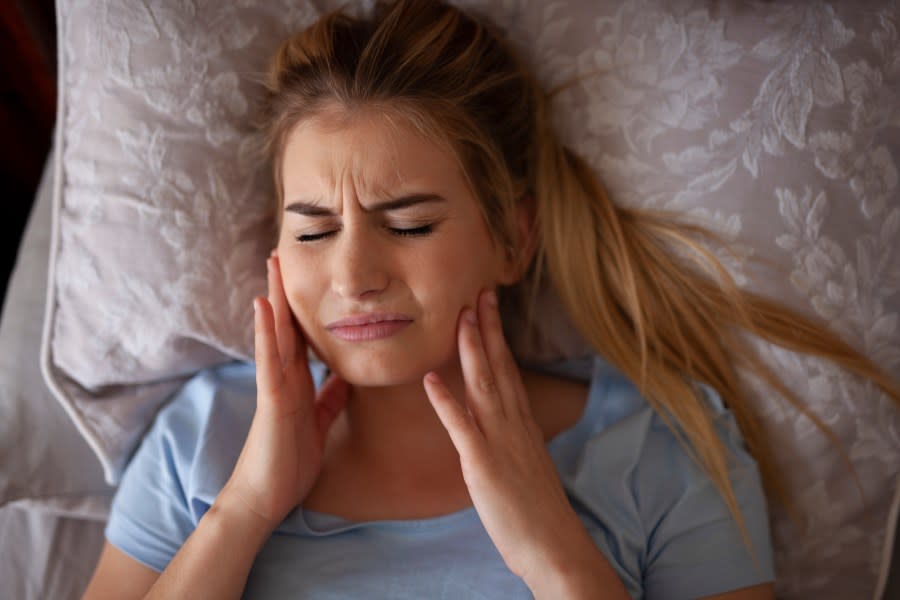The Nightly Grind: How bruxism affects your teeth

TAMPA (BLOOM) – Bruxism, commonly known as teeth grinding, is a condition affecting millions of people, yet it remains widely overlooked. The implications of untreated bruxism can be severe, leading to a myriad of dental health issues that extend beyond simple discomfort. In this article, learn what bruxism is, its impact on your dental health, and how to prevent further damage effectively.
What is Bruxism?
Bruxism is the involuntary grinding or clenching of teeth, typically occurring during sleep, although it can happen during waking hours as well (known as awake bruxism). Common symptoms include jaw soreness, headaches, and damaged teeth. Diagnosis often involves dental exams and potentially overnight sleep studies.
The Direct Consequences on Teeth
The immediate toll of bruxism on your teeth can be alarming. Regular grinding wears down the tooth enamel, leading to chipping, cracking, and even tooth loss. Over time, teeth may appear flattened or shortened, which can be cosmetically unpleasing.
![Images of damaged teeth from bruxism]
The Impact on Gums and Jaw
Bruxism doesn’t just stop at your teeth; it also affects your gums and jaw. Persistent grinding can lead to gum recession, making your teeth appear longer and increasing sensitivity. Furthermore, the constant pressure and movement can lead to Temporomandibular Joint (TMJ) disorders, causing pain and difficulty in jaw movement.
Secondary Effects on Oral Health
When untreated, bruxism can exacerbate other dental issues such as cavities and tooth sensitivity. It may also wear down any dental work you’ve had done, like fillings or crowns, making them less effective and requiring replacements more frequently.
The Role of Stress and Lifestyle
Several factors contribute to bruxism, with stress and anxiety being leading culprits. Lifestyle choices, such as excessive caffeine or alcohol consumption, may also exacerbate the condition. This makes stress management an integral part of a holistic approach to treating bruxism.
Prevention and Treatment Options
Preventing and treating bruxism involves both lifestyle changes and medical interventions. Here are some of the most effective options:
Stress Management: Techniques such as mindfulness and yoga can help.
Dietary Changes: Limiting caffeine and alcohol may reduce symptoms.
Mouth Guards: A range of night guards are available to help protect your teeth during sleep.
Recommended Mouth Guard Manufacturers
Impact Mouthguards: Custom-made and designed to fit comfortably, these guards are a favorite for their durability.
SleepRight: Offers a no-boil design that adjusts to fit your mouth.
Oral-B Nighttime Dental Guard: An affordable, over-the-counter option with a boil-and-bite design.
Expert Opinions
Leading dental professionals emphasize the importance of early detection and treatment to prevent irreversible damage. “Ignoring signs of bruxism can lead to costly dental work down the line,” warns Dr. Jane Smith, a dentist specializing in treating bruxism.
Bruxism is more than just a nightly annoyance; it’s a serious condition with lasting implications for your dental health. Understanding its symptoms, effects, and available treatments is crucial for maintaining not just a healthy smile but overall well-being.
Don’t grind away your health in ignorance; seek professional help if you suspect you’re suffering from bruxism.
Copyright 2024 Nexstar Media, Inc. All rights reserved. This material may not be published, broadcast, rewritten, or redistributed.
For the latest news, weather, sports, and streaming video, head to WFLA.

